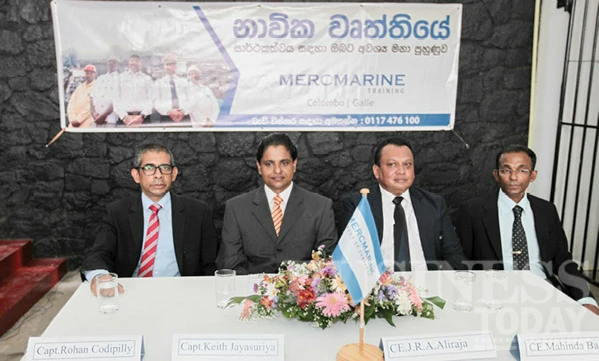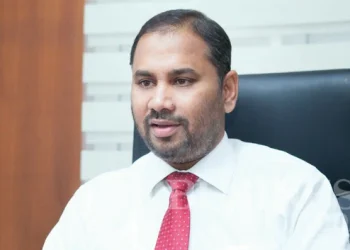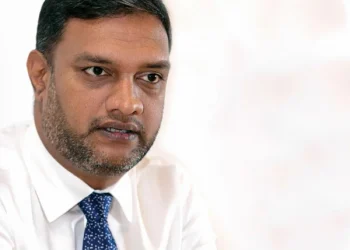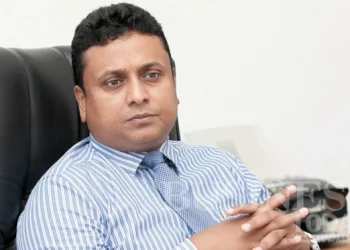
MERCMARINE Training, the reputed maritime training institute, inaugurated a state-of-the-art Engine Room Simulator. L P Jayampathy, Secretary to the Ministry of Ports and Shipping graced the occasion as the chief guest while many other distinguished invitees including representatives of Mercmarine Training were present to celebrate this momentous occasion.
The Marine Engine Room Simulator, is the latest version of ‘Transas’, model 5000 TECHSIM, full mission and is hailed as the most advanced and latest engine room simulator in Sri Lanka.The main objective of the programme and the simulators to replicate the operations of an engine room, so thatstudents will be able to receive the necessary on the job training without any damage to equipment and the environment. It is designed to train and assess the competence of engine department personnel, including officers in charge of an engineering watch, fourth engineer, third engineer, second and chief (operational level and management level). The simulator provides an exact, detailed copy of vessel systems and simulates machinery and the engine room compartments. The ERS 5000 TechSim has been specifically developed for engineering staff and provides a hands-on experience in watch-keeping, troubleshooting and resource management.
The trainee software features of the simulator include, ship’s diesel propulsion plant, ship’s electric power plant, auxiliary systems and machinery, local control from the engine room, machinery sound imitation, alarm systems with sound and visual alarm unit and 3D visualisation. The training objectives include engine room equipment familiarisation, system layout and flow diagrams, machinery control, control system, automation, alarm and safety system, emission control and fuel economy management, energy management, emergency operations, watch-keeping and troubleshooting and vessel resource management-thus providing a world class and overall experience to students in relation to the engine room.
For those who are seeking a career in the shipping industry, especially in the engineering field, there are two pathways to follow. One is to start off as an Engine rating and the other is to be an Engineering cadet. In order to be a rating, prospective students need to have three passes in Ordinary Levels-in English, Math and Science. This requirement was deemed necessary by Mercmarine Training in order to ensure that students who are sent aboard international ships are able to understand and communicate with the crew. A student who elects to be a rating, will first follow a four month residential programme at the Galle training school of Mercmarine Training, after which he will receive the said designation. Afterwards through experience he can get promoted as an oiler. However, those who wish to pursue their career further can work as a rating for 36 months, after which he becomes eligible to write the officer exam, MEO Certificate of Competency – Class III conducted by the Director General Merchant Shipping (DGMS) of Sri Lanka .
The other career option is to start off as an Engineering cadet. In order to elect this career option one has to have six passes in the GCE O/Ls, which must include credit pass in English, followed by two passes at the Advanced Level Math or Science stream as per the entry criteria set by the DGMS of Sri Lanka. The first phase of the Engineering Officer Cadet Training Programme includes a 12-month residential programme held at Mercmarine’s training centre in Galle. This component comprises of theory, practical and basic STCW sessions. Afterwards the students are directed towards a nine-month industrial training programme either at the Colombo Dockyard or a Power Plant so that they can get themselves familiarised with the equipment. Then they are assigned to a ship for onboard training as an Engine Cadet for 12 months. The phase four of the programme is a four month preparatory course designed to prepare Engine Cadets to sit for the MEO Certificate of Competency – Class III, which will enable them to reach the post of 4th Engineer. After achieving the 4th Engineer post, based on experience and performance he will be promoted as a 3rd Engineer.
After 18 months of sea service and a seven-month preparatory programme you will be eligible to sit for Marine Engineering Officer Class II – 2nd Engineer examination. As the final step after another 18-month period of sea service and a seven-month preparatory programme, one could sit for the Marine Engineering Officer Class I – Chief Engineer examination to reach the pinnacle in the career of a Marine Engineer.
“Sea Training is essential as part of the programme and to this end we have tied up with various entities to ensure that students who enroll with us can get proper on the job training,” said Capt Keith Jayasuriya, General Manager, “At Mercmarine we elect and train students based on the number of ships we have available. We strive to ensure that each student obtains a ship to train at within six months the latest. And the first preference is given based on merit. Further we project ourselves as a training institute that focuses on preparing students to face the exams and certificated administered and issued by the ministry.”
MERCMARINE Training specialises in training and development of local youth in the fields of Navigational Officer Cadets, Engineering Officer Cadets, Deck Rating, Engine Rating and Catering Rating as an entry level for the seafaring profession. All courses offered are approved by the Director General’s Office of Merchant Shipping (DGMS) – Ministry of Ports and Highways of Sri Lanka who is the government appointed single authority for all maritime related training in the country. The Training arm has also obtained the ISO 9001:2008 Quality Management System Certifications from DNV and also operates as a City and Guilds (UK) approved training centre for it’s Catering and Housekeeping related training programmes.






